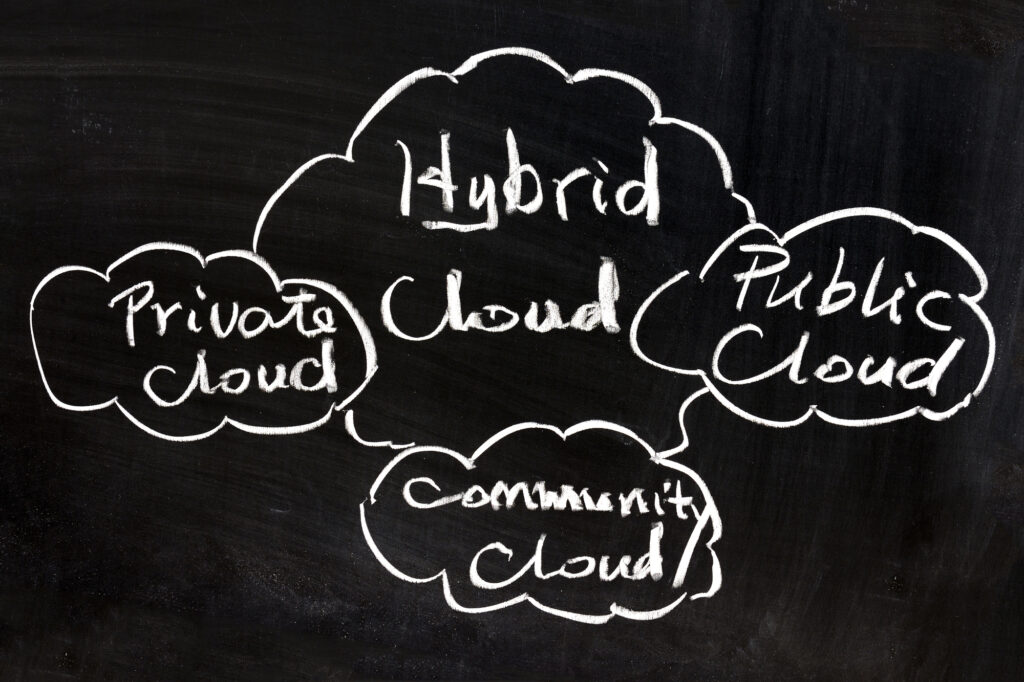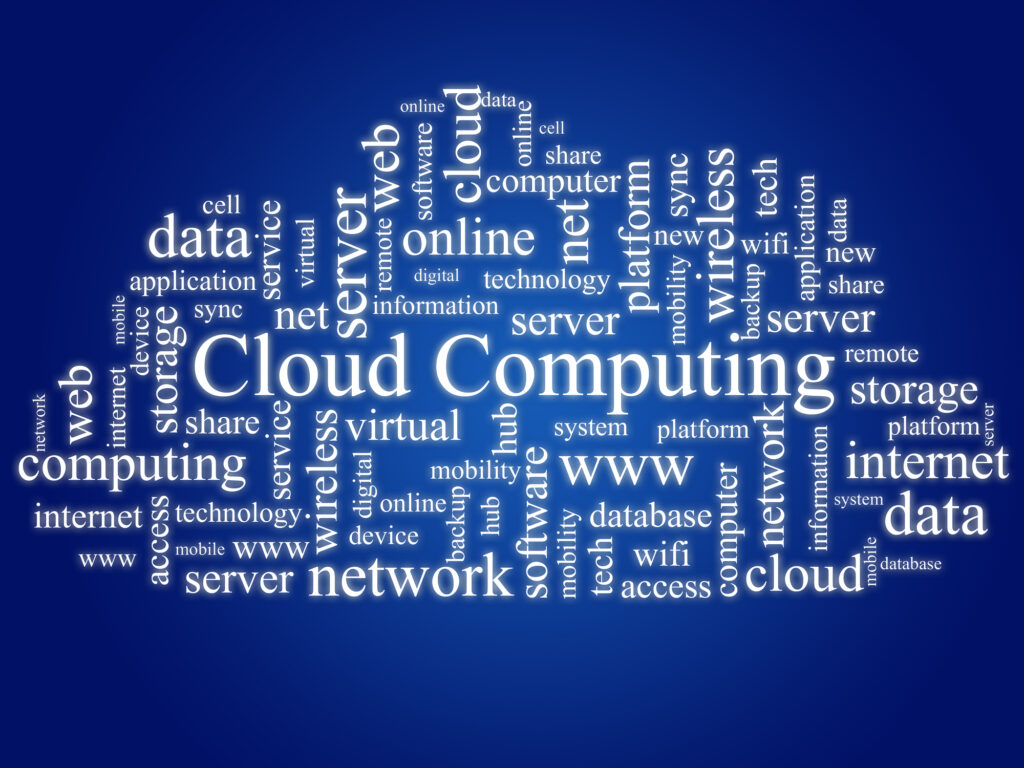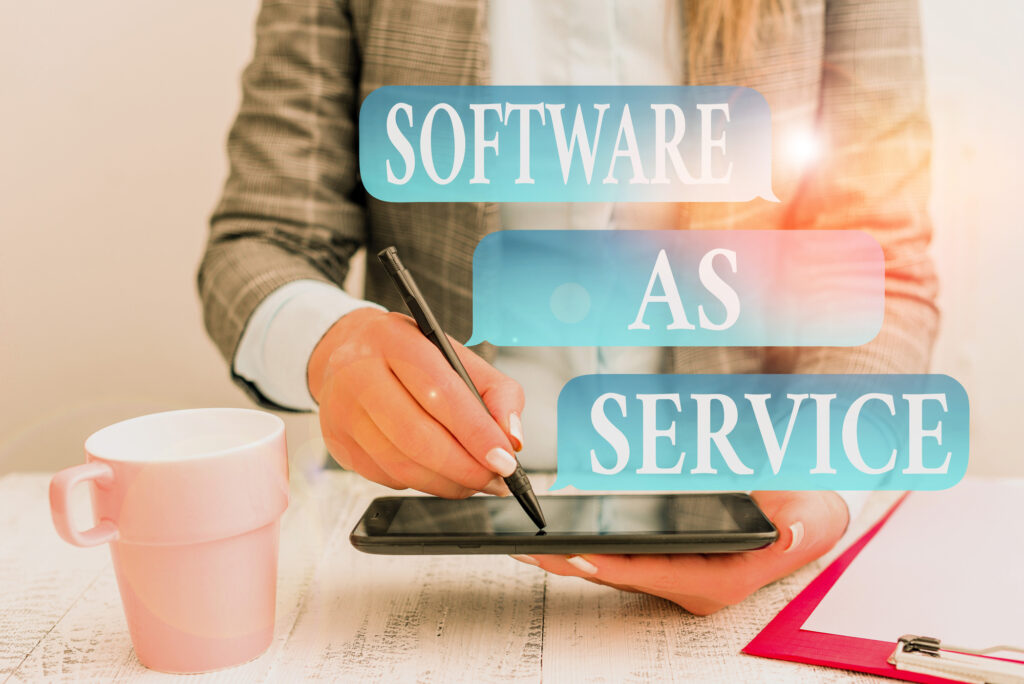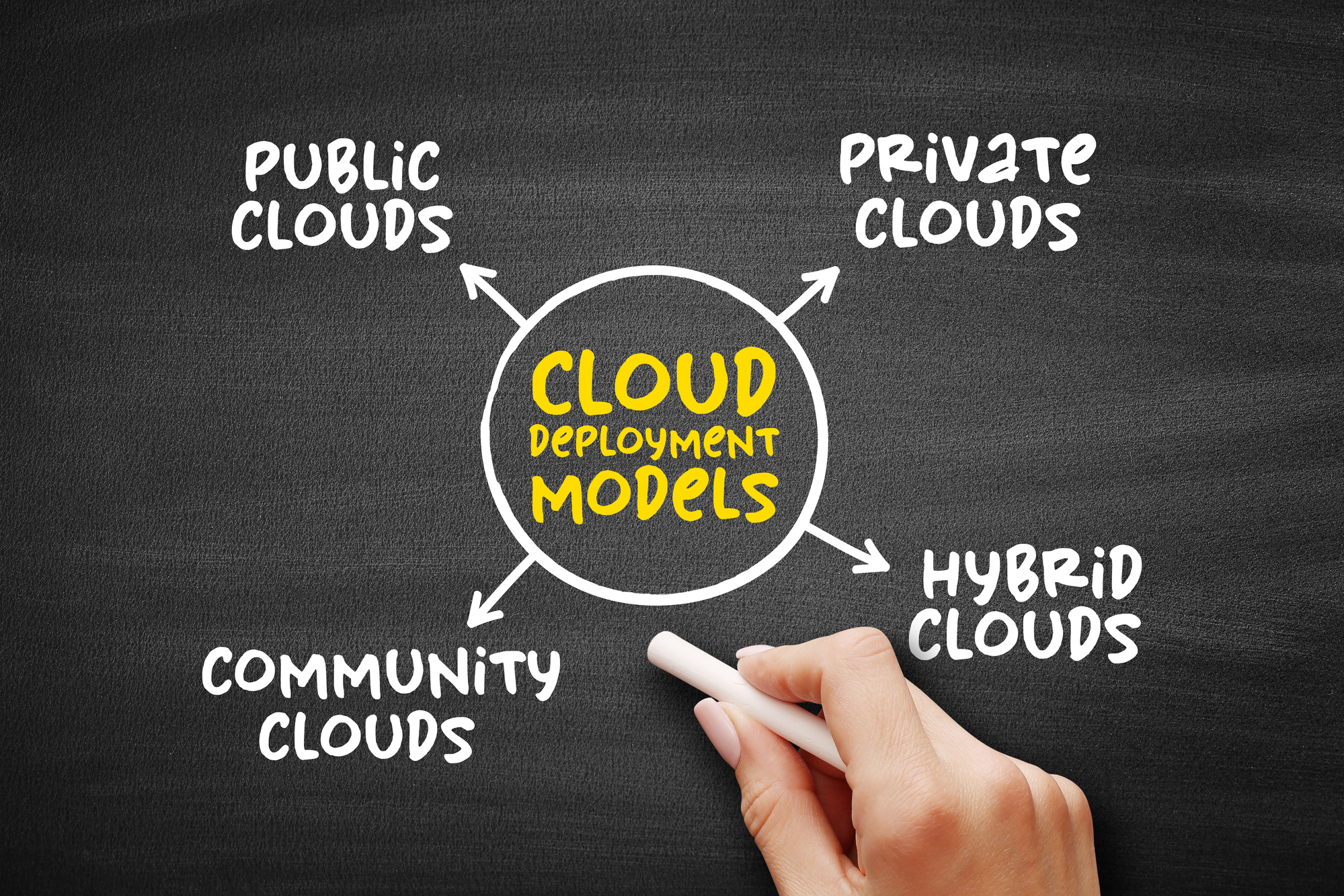As they say, “the sky’s the limit,” and in the world of technology, the cloud is the sky that holds endless possibilities. Cloud computing has revolutionized how we store, manage, and process data. It offers a range of options to cater to diverse needs, and understanding the different types is crucial in harnessing its full potential.
Private clouds provide dedicated computing resources for organizations that require predictable use patterns and enhanced security. Public clouds, on the other hand, offer scalability and flexibility for high-volume or fluctuating demands. But why settle for one when you can have the best of both worlds? Hybrid clouds combine the features of public and private clouds, providing a custom environment that can be scaled according to your needs.
And if that’s not enough, there’s multicloud, where you can leverage multiple cloud providers to optimize performance and minimize risk.
But it’s not just about the types of clouds, it’s also about the services they offer. Infrastructure-as-a-Service (IaaS), Platforms-as-a-Service (PaaS), and Software-as-a-Service (SaaS) are all at your disposal, allowing you to build, deploy, and manage applications with ease.
So, whether you’re a business looking to streamline operations or an individual seeking efficient data management, cloud computing has something for everyone. Let’s explore the types of cloud computing and unlock the potential of the sky above.
Key Takeaways
- There are four types of cloud computing: private clouds, public clouds, hybrid clouds, and multiclouds.
- There are three types of cloud computing services: Infrastructure-as-a-Service (IaaS), Platforms-as-a-Service (PaaS), and Software-as-a-Service (SaaS).
- Public cloud providers include Alibaba Cloud, Amazon Web Services (AWS), Google Cloud, IBM Cloud, and Microsoft Azure.
- Public clouds have a wider variety of security threats, while private clouds are considered more secure.
Private clouds
When it comes to private clouds, two main subtypes are worth exploring: managed private clouds and dedicated clouds. Managed private clouds involve the provider taking care of the day-to-day management and maintenance of the private cloud model and infrastructure, while dedicated clouds provide a dedicated and isolated environment for a single organization. These two types of private clouds offer different levels of control, customization, and security, making them suitable for different use cases and requirements.
Managed private clouds
Managed private clouds offer businesses peace of mind by providing a secure and dedicated cloud environment that can be tailored to their specific needs. Here are three key benefits of opting for a managed private cloud:
- Enhanced Security: Managed private cloud providers prioritize security measures, including data encryption, firewalls, and access controls. With dedicated resources, businesses can have greater control over their data and minimize the risk of cyber threats.
- Customization: Managed private clouds allow businesses to customize their infrastructure, applications, and services according to their unique requirements. This flexibility enables them to optimize performance, scalability, and resource allocation, improving efficiency and productivity.
- Predictable Pricing: Unlike public clouds that charge based on usage, managed private cloud pricing is often based on a fixed monthly fee. This predictable pricing model allows businesses to plan their budget effectively and avoid unexpected costs.
While managed private clouds offer enhanced security and customization, they may not be as cost-effective as public clouds. However, businesses with sensitive data and strict compliance requirements may find the added security and control worth the investment.
Dedicated clouds
For you, stepping into the realm of dedicated clouds is like entering a fortress, where every resource and service is solely dedicated to safeguarding your data and empowering your business. Dedicated clouds offer a higher level of security and control compared to public or shared private clouds. With dedicated clouds, you have exclusive use of the infrastructure, ensuring that your data is not co-mingled with others. This provides enhanced privacy and compliance with industry regulations. Dedicated cloud service providers, such as Rackspace and IBM Cloud, offer customizable solutions tailored to meet the specific needs of your business. Dedicated clouds are ideal for industries with stringent security requirements, such as healthcare, finance, and government. Use cases for dedicated clouds include hosting critical applications, running sensitive workloads, and managing large-scale databases. Dedicated clouds provide the peace of mind and reliability needed to support your mission-critical operations.
Public clouds
Choose a public cloud provider that offers unparalleled scalability, reliability, and a wide range of services to meet your business needs. When considering public cloud options, it’s important to evaluate the security measures in place and the cloud service provider’s reputation for data privacy. Here are some key points to consider when comparing public cloud providers:
- Public cloud security: Look for providers that prioritize security and have robust measures in place to protect your data. This includes features like encryption, access controls, and regular security audits.
- Public cloud providers comparison: Take the time to compare different providers and their offerings. Look at factors such as pricing models, service level agreements, customer support, and the range of services available.
- Public cloud cost analysis: Consider the cost implications of choosing a public cloud provider. While public clouds typically charge based on usage, it’s important to understand the pricing structure and any additional costs for services or storage.
- Public cloud scalability: Scalability is a key advantage of public clouds, allowing you to easily scale up or down based on your needs. Look for providers that offer flexible scaling options to accommodate your business growth.
- Public cloud data privacy: Data privacy is crucial, especially if you handle sensitive or regulated data. Ensure the provider has proper data privacy measures, including compliance with relevant regulations.
By carefully evaluating these factors, you can choose a public cloud service provider that meets your immediate needs and provides a secure and cost-effective solution for your business.
Hybrid clouds

Explore the harmonious blend of both public and private cloud environments with hybrid clouds, where your data can flow seamlessly like a river between different cloud platforms. Hybrid clouds offer a unique solution that combines the benefits of both public and private clouds, providing organizations with flexibility, scalability, and enhanced security.
Hybrid cloud security is critical to consider when deploying a hybrid cloud environment. Organizations can implement a multi-layered security approach by leveraging both public and private cloud resources. Private clouds offer enhanced security measures, while public clouds provide the advantage of economies of scale. This combination minimizes data exposure and reduces the risk of security breaches.
The benefits of hybrid clouds extend beyond security. Organizations can take advantage of the scalability and flexibility offered by public clouds, while maintaining control over sensitive data in their private cloud environment. Hybrid clouds also enable businesses to optimize costs by dynamically allocating workloads based on demand between public and private clouds.
However, deploying and managing hybrid clouds can present challenges. Organizations must carefully plan their hybrid cloud strategy, considering factors such as workload requirements, data governance, service models, and integration complexities. Effective hybrid cloud management tools and strategies are essential to ensure seamless operations and performance optimization.
Hybrid clouds provide a powerful solution that combines the best features of public and private clouds. By leveraging the benefits of both environments, organizations can achieve flexibility, scalability, enhanced security, and cost optimization. However, successful deployment and management of hybrid clouds require careful planning and the use of appropriate tools and strategies.
Multiclouds
Now that we have explored the concept of hybrid clouds, let’s delve into another fascinating aspect of cloud computing models: multiclouds. Multiclouds refer to the practice of using multiple cloud providers to meet different business needs. This approach allows organizations to leverage various cloud platforms’ unique strengths and capabilities.
Container orchestration plays a crucial role in managing multicloud environments. It enables the efficient deployment, scaling, and management of containerized applications across multiple clouds. Using container orchestration tools like Kubernetes, organizations can ensure seamless integration and portability of their applications across different clouds.
Multicloud management is essential for optimizing costs and ensuring efficient resource allocation. It involves monitoring and optimizing cloud usage to avoid unnecessary expenses and maximize the value of cloud investments. Additionally, multicloud management enables organizations to implement robust data governance strategies, ensuring data security and compliance across multiple cloud environments.
Speaking of security and compliance, managing multiple cloud providers can present unique challenges. Organizations must carefully consider each cloud provider’s security measures and compliance standards to maintain a strong security posture. Implementing consistent security practices and maintaining compliance across multiple clouds requires a comprehensive approach.
Multiclouds offer organizations the flexibility to choose the best cloud platforms for their specific requirements. With effective container orchestration, cloud deployment models, cost optimization, data governance, and security measures, multicloud environments can provide a powerful solution for serving others efficiently in the cloud.
Types of Cloud computing services
When it comes to cloud computing services, there are three main types: Infrastructure-as-a-Service (IaaS), Platforms-as-a-Service (PaaS), and Software-as-a-Service (SaaS). IaaS involves the provider managing the infrastructure while the user manages the various operating systems, system and apps. PaaS provides a shared cloud platform for application development and management without the need for infrastructure. Lastly, SaaS delivers a software application managed by the provider and accessed via a web browser. These services offer different levels of control and flexibility, allowing businesses to choose the one that best suits their needs.
Infrastructure-as-a-Service (IaaS)

IaaS, or Infrastructure-as-a-Service, is a cloud computing platform as a service, that allows you to focus on managing your operating system and apps while the provider takes care of the infrastructure. It offers various pricing models, such as pay-as-you-go or reserved instances, giving you flexibility and cost-efficiency. When it comes to scalability, IaaS provides options to easily scale up or down based on your needs, allowing you to adapt to changing demands without the need for purchasing or renting additional hardware. IaaS providers implement robust measures, including data encryption, access controls, and regular security audits, to protect your data. To manage your IaaS resources effectively, there are management tools available that provide features like monitoring, automation, and resource optimization. When deploying IaaS, you can choose between public, private, or hybrid cloud strategies based on your specific requirements. IaaS empowers businesses by providing a reliable and flexible infrastructure foundation for their applications.
Platforms-as-a-Service (PaaS)

To unlock your applications’ potential, PaaS offers a shared cloud platform that seamlessly integrates development and management, empowering you to focus on innovation and growth. With PaaS, you can accelerate application development and deployment by leveraging pre-built components, frameworks, and development tools together. This allows you to streamline the development process and reduce time-to-market. PaaS also provides scalability and flexibility, allowing you to easily scale your applications based on demand.
Some examples of PaaS providers include Microsoft Azure’s Azure App Service, Google Cloud’s App Engine, and Salesforce’s Heroku. These platforms offer a range of services, from application hosting to database management and analytics.
Implementing PaaS can bring several benefits, such as lower infrastructure costs, improved collaboration, and increased productivity. However, it also comes with its challenges, including vendor lock-in and limited customization options.
Compared to IaaS, PaaS abstracts away the complexities of infrastructure management, allowing you to focus solely on application development and deployment.
Software-as-a-Service (SaaS)

Implementing SaaS can revolutionize the way you access and use software applications, providing convenient and efficient solutions without the hassle of infrastructure management. SaaS deployment models include single-tenant and multi-tenant options. Single-tenant SaaS provides dedicated resources for each customer, ensuring greater customization and security. Multi-tenant SaaS deployment model, on the other hand, allows multiple customers to share the same infrastructure, resulting in cost savings and easier scalability.
While SaaS offers numerous benefits such as reduced upfront costs, easy accessibility, and automatic updates, there are also some drawbacks to consider. These include limited customization options and potential data security concerns. SaaS security considerations should include data encryption, access controls, and regular vulnerability assessments.
SaaS pricing models typically involve a subscription-based approach, where users pay a recurring fee for access to the software. Some providers offer tiered pricing based on usage or the number of users.
Integration challenges may arise when trying to connect SaaS applications with existing infrastructure, on-premises systems or other cloud services. It is essential to ensure compatibility and seamless data flow between different platforms.
Overall, SaaS can provide significant benefits for organizations seeking efficient and cost-effective software solutions. However, careful consideration must be given to security, pricing, and integration challenges to ensure a successful implementation.
Frequently Asked Questions
What Are The Advantages And Disadvantages Of Using A Private Cloud Compared To A Public Cloud?
There are both advantages and disadvantages to using a private cloud compared to a public cloud. One advantage of a private cloud is its increased security, as it is dedicated solely to one organization. Another advantage is the greater control and customization options available with a private cloud. However, private clouds require significant upfront costs for hardware and infrastructure. On the other hand, public clouds offer scalability and cost-effectiveness but may have potential security risks and limited customization options. Hybrid clouds combine the best of both worlds, offering flexibility and security.
How Can A Company Determine If A Hybrid Cloud Environment Is The Right Choice For Their Workload?
A company should consider several factors to determine if a hybrid cloud environment is the right choice for their workload. They should assess the benefits that a hybrid cloud deployment can provide, such as flexibility and scalability. They should also consider the challenges that may arise, like data integration and security. Best practices can include proper workload analysis and strategic planning. Examining case studies of companies with similar workloads can provide valuable insights. Overall, careful consideration of these factors can help a company make an informed decision.
What Are The Key Differences Between Multicloud And Hybrid Cloud Architectures?
The key differences between multicloud and hybrid cloud architectures lie in their deployment and security aspects. Multicloud environments offer the benefits of leveraging multiple cloud service providers for increased flexibility and redundancy. However, managing and integrating multiple cloud platforms can pose challenges. On the other hand, hybrid cloud combines public and private clouds to optimize workload placement and data security. Hybrid cloud security is typically stronger due to the control over private infrastructure. Ultimately, the choice between multicloud and hybrid cloud depends on specific workload requirements and security needs.
What Are Some Examples Of Popular IaaS, PaaS, And SaaS Providers In The Market?
When it comes to IaaS, some popular providers in the market include Amazon Web Services (AWS), Microsoft Azure, and Google Cloud. These providers offer the advantage of scalability and flexibility, allowing users to easily scale their infrastructure up or down based on their needs. On the other hand, PaaS providers like Heroku and IBM Cloud provide a shared platform for application development and management, simplifying the process for users. Finally, for SaaS, examples of popular providers include Salesforce, Microsoft Office 365, and Dropbox, which offer ready-to-use software applications accessed through a web browser. Determining the right choice for your workload depends on security requirements, workload size, and budget. Containerization and serverless architecture are also important considerations, as they offer advantages in terms of resource utilization and cost efficiency.
How Does Containerization And Serverless Architecture Contribute To The Scalability And Flexibility Of Cloud Applications?
Containerization and serverless architecture offer significant benefits for scalability and flexibility in cloud applications. Containerization allows applications to be packaged with all their dependencies, making them portable and easily deployable across different environments. This enables rapid scaling and efficient resource utilization. On the other hand, serverless architecture eliminates the need to manage and provision servers, allowing developers to focus solely on writing code. This flexibility enables quick response to changing demands and optimizes the performance of cloud applications.
Conclusion
In conclusion, the various types of cloud computing offer many options for businesses and individuals alike. Private clouds provide predictability and control, while public clouds offer scalability and flexibility. Hybrid clouds combine the best of both worlds, ensuring enhanced security and customized environments. Multiclouds allow for diversification and redundancy. The choice of cloud computing types depends on the workload and cost considerations. Regardless of the type, cloud management platforms and services are crucial in optimizing resources. Embrace the power of cloud computing and unlock a world of possibilities!
Ready to harness the power of the cloud? Whether you’re exploring private, public, hybrid, or multicloud solutions, ZZ Servers guides you every step of the way. Our team of experts can help you navigate the complexities of cloud computing and find the perfect solution tailored to your unique needs. Don’t let the cloud be a mystery any longer. Contact us today and let’s unlock the potential of the sky together. Your journey to efficient and secure cloud computing starts with ZZ Servers!



